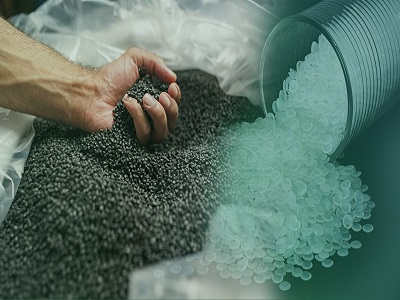Poly Vinyl Chloride (PVC) is a versatile and widely used synthetic polymer in the global market. The pricing dynamics of PVC are influenced by a myriad of factors, reflecting the complex interplay between supply and demand forces. As of the most recent data available, the PVC market has experienced fluctuations in prices that have garnered significant attention from industry stakeholders.
One of the primary drivers impacting PVC prices is the cost of raw materials. PVC is produced from vinyl chloride monomers, which are derived from ethylene and chlorine. Fluctuations in the prices of these raw materials can have a cascading effect on PVC prices. Factors such as changes in energy costs, geopolitical events, and supply chain disruptions can contribute to the volatility of raw material prices, thereby influencing the overall cost structure of PVC production.
Global demand for PVC plays a pivotal role in determining its market prices. The construction industry is a major consumer of PVC, with applications ranging from pipes and fittings to cables and flooring. As economies undergo periods of growth or contraction, the demand for PVC in construction projects can vary, leading to corresponding shifts in market prices. Additionally, the automotive, packaging, and healthcare sectors also contribute significantly to the demand for PVC, further shaping its pricing landscape.
Get Real Time Prices of Poly Vinyl Chloride (PVC): https://www.chemanalyst.com/Pricing-data/poly-vinyl-chloride-5
Trade dynamics and international market trends also exert a substantial impact on PVC prices. The PVC market is highly interconnected globally, with regions relying on imports and exports to meet their demand. Tariffs, trade agreements, and geopolitical developments can disrupt these supply chains, influencing the availability of PVC in different markets. Such disruptions can create a ripple effect, causing price fluctuations that reverberate across borders.
Environmental regulations and sustainability concerns have emerged as key determinants affecting the PVC market. As governments worldwide intensify their focus on environmental protection, the PVC industry faces scrutiny due to the environmental impact associated with its production and disposal. Stringent regulations aimed at reducing the use of PVC or encouraging eco-friendly alternatives can affect the market dynamics and contribute to price fluctuations.
The global economic landscape and currency exchange rates are additional factors contributing to the pricing variability of PVC. Economic downturns or uncertainties can lead to decreased demand, affecting PVC prices. Moreover, currency fluctuations can impact the cost of imported raw materials, influencing the overall cost structure for PVC manufacturers.
In recent years, technological advancements and innovations in PVC production processes have played a role in shaping market prices. Improved manufacturing techniques, enhanced efficiency, and the development of bio-based PVC alternatives have the potential to influence the supply side of the market. As these technologies mature and gain wider adoption, they may contribute to market competitiveness and impact pricing trends.
The PVC market’s susceptibility to unforeseen events, such as natural disasters, pandemics, or political unrest, adds an element of unpredictability to pricing dynamics. These events can disrupt supply chains, causing shortages or surpluses that reverberate through the PVC market, impacting prices and supply-demand equilibrium.
In conclusion, the Poly Vinyl Chloride market is a complex ecosystem influenced by a multitude of interconnected factors. The interplay of raw material costs, global demand, trade dynamics, regulatory frameworks, economic conditions, technological advancements, and unforeseen events collectively contribute to the pricing dynamics of PVC. Stakeholders in the PVC industry must remain vigilant and adaptable to navigate the evolving landscape, where market prices are shaped by a delicate balance of supply and demand forces amidst a backdrop of global influences and challenges.
Contact Us:
ChemAnalyst
GmbH – S-01, 2.floor, Subbelrather Straße,
15a Cologne, 50823, Germany
Call: +49-221-6505-8833
Email: sales@chemanalyst.com
Website: https://www.chemanalyst.com

